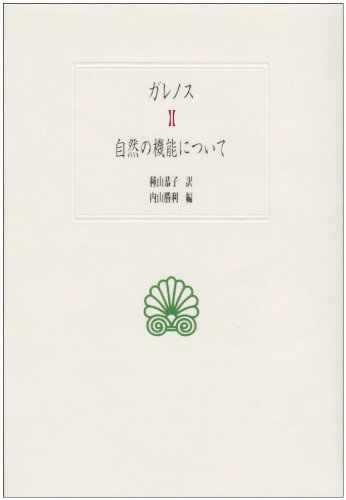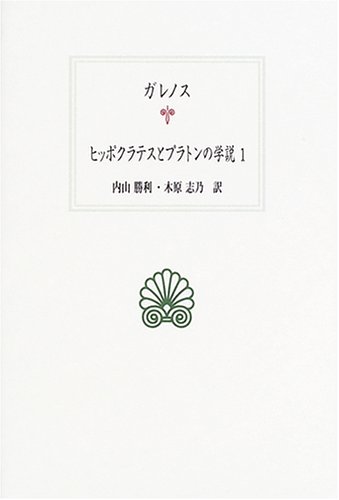3 0 0 0 OA 「ステファヌス版」以前以後―『プラトン著作集』の伝承史から―
- 著者
- 内山 勝利
- 出版者
- 京都大学附属図書館
- 雑誌
- 静脩 (ISSN:05824478)
- 巻号頁・発行日
- vol.40, no.2, pp.1-7, 2003-10
2 0 0 0 ノモスとロゴス : 『クリトン』のソクラテスを中心に
- 著者
- 内山 勝利
- 出版者
- 日本西洋古典学会
- 雑誌
- 西洋古典学研究 (ISSN:04479114)
- 巻号頁・発行日
- vol.29, pp.41-52, 1981
The main purpose of this paper is to reconsider the true standpoint of Socrates in the Crito, one of the earlier dialogues of Plato, in order to remove misunderstandings about the Socratic attitude towards the city-state and the law. This attempt will at the same time clarify the substantial principle which is constantly held by Socrates throughout his life and death. From ancient times, it has been frequently considered that Socrates in the Crito puts the law of the city-state into the position of the absolute standard of ethical judgment. A series of discussions on this problem has recently again arisen from the papers of R. Martin("Socr. on Disob. to the Law", Rev. of Metaph., 24/1970, 21-38)and of A. D. Woozley("Socr. on Disob. the Law", G. Vlastos ed., Philos. of Socr., 1971, 299-318). Many of the writers debate it on the assumption that the central point of the assertion here stated by Socrates lies in the 'Destruction of the City' argument(so named by G. Young, whose paper in Phronesis 19/1974 is also referred to particularly in my paper) , whether they agree with or reject it. But, the author thinks, when we read the Crito following carefully the essential structure of the argument which is, as is explicitly stated at 48E-49E, already systematically methodised, and that in the same way as is formalised in the Phaedo, then it will become obvious that the 'Destruction of the City' argument is only a showy but untrue one, while Socrates' substantial assertion is stated duly with the 'hypothetical' procedure based exactly on the αρχαι(49D-E). The true reason for his refusal to escape is, accordingly, not because his escape might bring destruction of the law and then of the city-state, but just because it is not compatible with the αρχαι accepted by himself or, in other words, not compatible with "the logos which upon reflection appears to me to be the best"(46B). In short: when said in response to the subtitle to this dialogue, περι πρακτεου, it is asserted here by Socrates that we should make our conduct conform to the judgment of the logos, and not in obedience to the law.
2 0 0 0 ソクラテス以前哲学者断片集
- 著者
- 内山勝利編 国方栄二 [ほか] 訳
- 出版者
- 岩波書店
- 巻号頁・発行日
- 1996
1 0 0 0 OA 「ステファヌス版」以前以後―『プラトン著作集』の伝承史から―
- 著者
- 内山 勝利
- 出版者
- 京都大学附属図書館
- 雑誌
- 静脩 (ISSN:05824478)
- 巻号頁・発行日
- vol.40, no.2, pp.1-7, 2003-10
1 0 0 0 IR 「ステファヌス版」以前以後―『プラトン著作集』の伝承史から―
- 著者
- 内山 勝利
- 出版者
- 京都大学附属図書館
- 雑誌
- 静脩 (ISSN:05824478)
- 巻号頁・発行日
- vol.40, no.2, pp.1-7, 2003-10
1 0 0 0 古代哲学史の研究仲間として 追悼・中川純男君
- 著者
- 内山 勝利
- 出版者
- 慶応義塾大学言語文化研究所
- 雑誌
- 慶応義塾大学言語文化研究所紀要 (ISSN:03873013)
- 巻号頁・発行日
- no.42, pp.1-5, 2011-03
1 0 0 0 ヒッポクラテスとプラトンの学説
- 著者
- ガレノス [著] 内山勝利 木原志乃訳
- 出版者
- 京都大学学術出版会
- 巻号頁・発行日
- 2005



